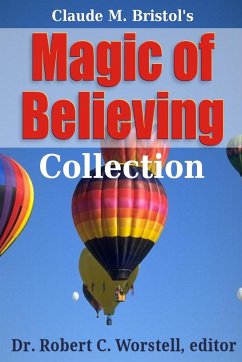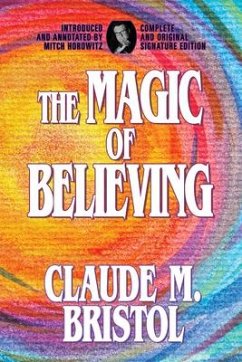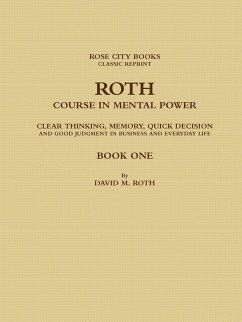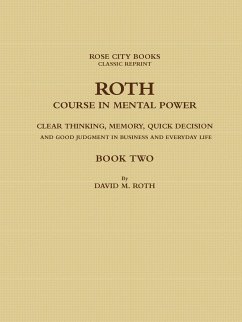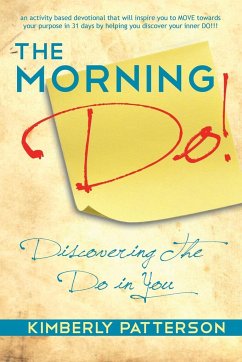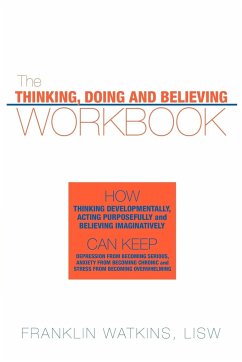
The Thinking, Doing and Believing Workbook
How Thinking Developmentally, Acting Purposefully and Believing Imaginatively Can Keep Depression from Bec

PAYBACK Punkte
8 °P sammeln!
Much of the popular literature about depression, anxiety and stress says that these conditions are so complicated that we need experts to explain them to us. Some writers say they are diseases; we need medical experts to understand them. Some say they are "disorders" so that, in addition to medical experts we need behavioral experts to tell us how our brain works. Others say we need master teachers to explain the universal truths of Eastern religion before we can fully understand our troubling feelings. Is it really true that our feelings are so complicated that we must rely on scientists and ...
Much of the popular literature about depression, anxiety and stress says that these conditions are so complicated that we need experts to explain them to us. Some writers say they are diseases; we need medical experts to understand them. Some say they are "disorders" so that, in addition to medical experts we need behavioral experts to tell us how our brain works. Others say we need master teachers to explain the universal truths of Eastern religion before we can fully understand our troubling feelings. Is it really true that our feelings are so complicated that we must rely on scientists and philosophers to explain them to us? This workbook gives a clear answer: NO. "The Thinking, Doing and Believing Workbook" views depression, anxiety and stress as normal human feelings. The problem is not that we have these feelings, it is that we neglect the messages they convey. When we neglect them they disrupt our daily functioning and, if we persist in neglecting them, they can ruin the quality of our lives. The Developmental Approach presented in this workbook notes the many ways we actively contribute to our depressive, anxious and stressful feelings. This is important because if we participate in becoming distressed then we have the option of changing our behavior and replacing dysfunctional habits with more functional ones. This workbook is a map. If you use it, it may: ¿ Help you understand what you have experienced and prepare you for what to expect. ¿ Suggest skills you might want to use as you travel through strange terrain. ¿ Find more creative ways to describe your emotional surroundings. ¿ Orient you to the present moment. ¿ Provide glimpses of recovery so that you will recognize it when you make progress along your way.



